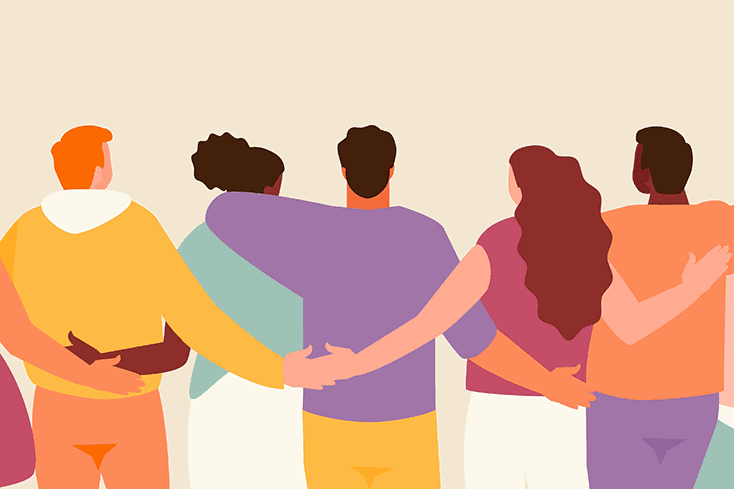September 14, 2022
By Kimberly Comer

On Aug. 27, 2012, I was admitted to the hospital again. I had been in a hypomanic/manic state for quite some time, and I began experiencing delusions and psychosis. I was 48 years old and had been cycling through the system (more often in the hospitals than out) for over 24 years. I was living in a 2005 Ford Taurus. I had lost my job, lost my family, lost my boyfriend and lost my hope. I was tired.
While in the hospital, I attended groups (most of which I could lead as I had attended them so many times), I started back on my medications and made progress in my recovery. After five days, administrators told me that I was ready to be discharged, but I first needed to attend one more group. I was not interested in participating. In fact, my plan after leaving the hospital was to return to my car and take my life.
That was the mindset with which I went to the group. To my surprise, it was not the usual group meeting — it was a NAMI In Our Own Voice presentation. I listened while two presenters shared their stories. One of the individuals, who was living a life I had only dreamed of, revealed that she had a diagnosis that was similar to mine. She shared she was married, had three children, worked a job she found fulfilling, attended college and volunteered to go back in the community and share her story of recovery. As they finished their presentations, I was in tears. The young lady came over to me, handed me her card and said that when I was discharged to give her a call, as she would like to talk with me further.
That presentation was life changing for me. For the first time since my initial diagnosis in 1989 (when “One Flew Over the Cuckoo’s Nest” was the movie of relevance), I had hope.
I Decided to Make a Change
The next day I was discharged. Instead of taking my life, I made the choice to call the local NAMI affiliate.
I was provided resources to connect with the local homeless shelter, health department for trauma counseling and the NAMI Connection support groups. The local affiliate gave me a safe place to be where I felt accepted. They allowed me to use one of my passions (data entry) to support them as they needed assistance transferring data from one system to another — even though I was still experiencing symptoms.
After participating in support groups, I was asked to train to become a facilitator. Shortly after, I was provided the opportunity to become a NAMI In Our Own Voice presenter. I also took the NAMI Peer-to-Peer class and started using the Wellness Recovery Action Plan (WRAP), in which I learned skills that would assist me in managing my chronic health conditions.
Today, I live a life that far exceeds any delusion I ever had (and I had some pretty good ones).
I Shared My Story in “You Are Not Alone.”
All these experiences have led me to where I am today in my wellness journey, and I have learned the power of hope, shared experiences and peer support. That’s why I am so glad to be included in NAMI’s first-ever book “You Are Not Alone.” I never want anyone to feel the way I did — I want them to have the support I found when I got involved in the NAMI community. My insightful conversations with Dr. Duckworth during the creation of this book allowed me to I reflect on the experiences and successes in recovery. I wish this type of book had been available for me to read at the beginning of my mental health journey.
Kimberly Comer’s story is featured in NAMI’s first-ever book, “You Are Not Alone: The NAMI Guide to Navigating Mental Health,” releasing on Sept. 20. You can pre-order the book here.
Submit To The NAMI Blog
We’re always accepting submissions to the NAMI Blog! We feature the latest research, stories of recovery, ways to end stigma and strategies for living well with mental illness. Most importantly: We feature your voices.
LEARN MORE